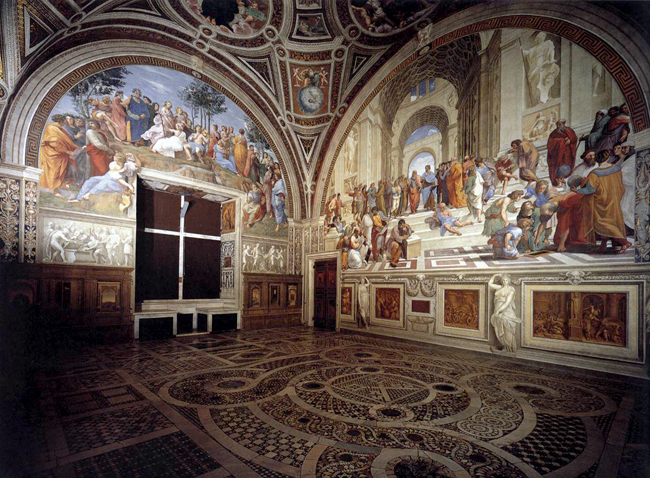What is the "Great Conversation", and how do we engage in it?
Philosophy is the cousin of theology. It is, or at least it should be, the pursuit of truth. I've spent some time reading and studying theology, but not much time with Philosophy at all. During a recent Doxology event I crossed paths with Rev. Dr. Gregory Schulz who, among other things, teaches Philosophy at Concordia University, Mequon, WI. In the course of the conversation he mentioned a list of "Master Metaphors of Philosophy," ten images brought to us from philosophy which, if considered and meditated on, cracked the door open to engaging in the Great Conversation of the West.
I couldn't stop thinking about that list.
Here are the Ten "Master Metaphors."
Greek and Medieval Metaphors
- Plato’s Allegory of the Cave (Republic, Book 7)
- Aristotle’s Cross Examination of Nature (Physics, Book 2, section 3)
- Augustine’s Story of the Pears (Confessions, Book 2)
- Aquinas’s Phoenix (On Being and Essence, Chapter 4)
- Descartes’ Evil Demon (Meditations on First Philosophy, Meditation 3)
- Berkeley’s Table (Principles of Human Knowledge, 1, 3).
- Kant’s Ultimate Principle for Relationships (Groundwork for the Metaphysics of Morals, 222)
- Nietzsche’s Madman (The Joyful Science)
- Wittgenstein’s Rule for When to Speak and When to Be Silent (Tractatus Logico-Philosophicus, 7)
- Searle’s Chinese Room (Minds, Brains and Programs in Behavioral and Brain Sciences, 1980, Vol 3, 417–57)
I was familiar with a few of these (okay, two of them), and I was filled with hope at the idea of getting my mind around these pictures, and sorting out how they would be helpful. In conversation with Dr. Schulz, the "Master Metaphors Project" was born.
Our hope is to present an introduct_ion to each metaphor, the text of each, an audio conversation about the metaphor, and a few reflections on the conversation. You will find all of this gathered here on this blog, as well as on Dr. Schulz's website, http://www.lutheranphilosopher.com/.
Here is Dr. Schulz's introduction to the project:
Philosophy and The Metaphors
Very early in the century of the Reformation, just a few years before 1517 when Martin Luther nailed the 95 Theses for Debate on Wittenberg’s church door, Raphael created two adjacent paintings in the Vatican Art Museum: On the viewers’ right, his work The School of Athens showing all the philosophers of the West as if they were doing philosophy together at one place and in one time. To the viewers’ left, The Disputation Concerning the Sacrament. These frescoes have a common theme: the revealed truth of the origin of all things, in other words the Trinity. This truth cannot be apprehended by intellect alone (philosophy), but is made manifest in the Eucharist (the Sacrament of the Lord’s Supper). Is there a relationship between reason and biblical faith? If so, how does it work in our lives and in our shared existence as human beings?
In Tertullian’s phrase from a millennium before the Reformation, “What does Jerusalem (the Lord’s church with its means of grace) have to do with Athens (philosophy)?” Well, one way to explore this relationship – in which we Lutheran thinkers distinguish between two uses of reason, namely a ministerial use of reasoning that submits to God’s Word over and against a magisterial use of reasoning by which we presume to employ our reasoning as if it could be God’s teacher and override His own words of Scripture – is to explore these modes of seeking wisdom by means of an extended reading and study of Ten Master Metaphors of Western Philosophy. We will first read them as philosophical texts and only then by compare and contrasting them to Christ and His Word. Can we do philosophy, can we be true to the best aspirations of philosophy from the view of the Lord who gives us His body and blood in, with, and under the bread and wine of the Eucharist. Let’s see if we can practice a philosophy kata Christon or based on Christ Himself (Colossians 2:8ff) as participants in this great conversation.
We start with Plato's Cave. Stay tuned...
Pr Bryan Wolfmueller
Pr Bryan Wolfmueller


 RSS Feed
RSS Feed
